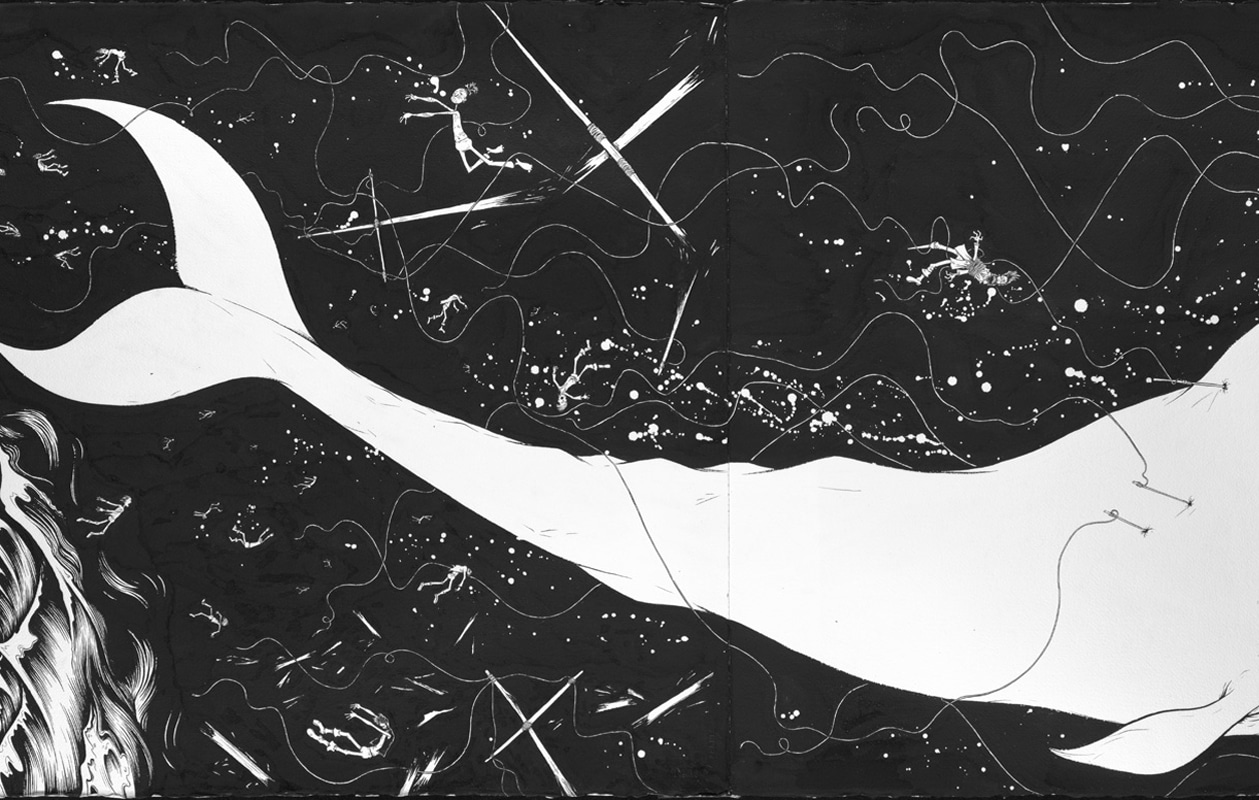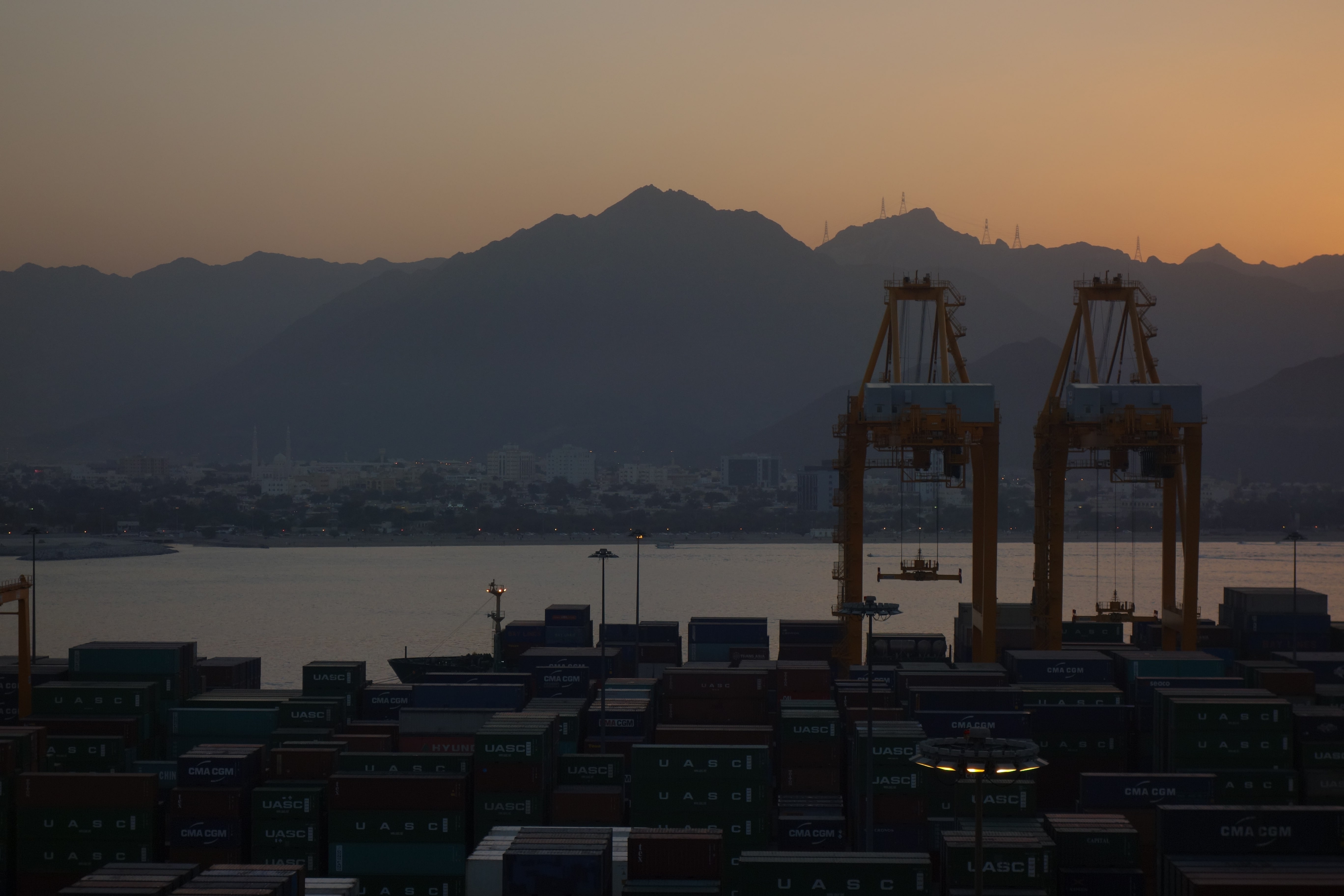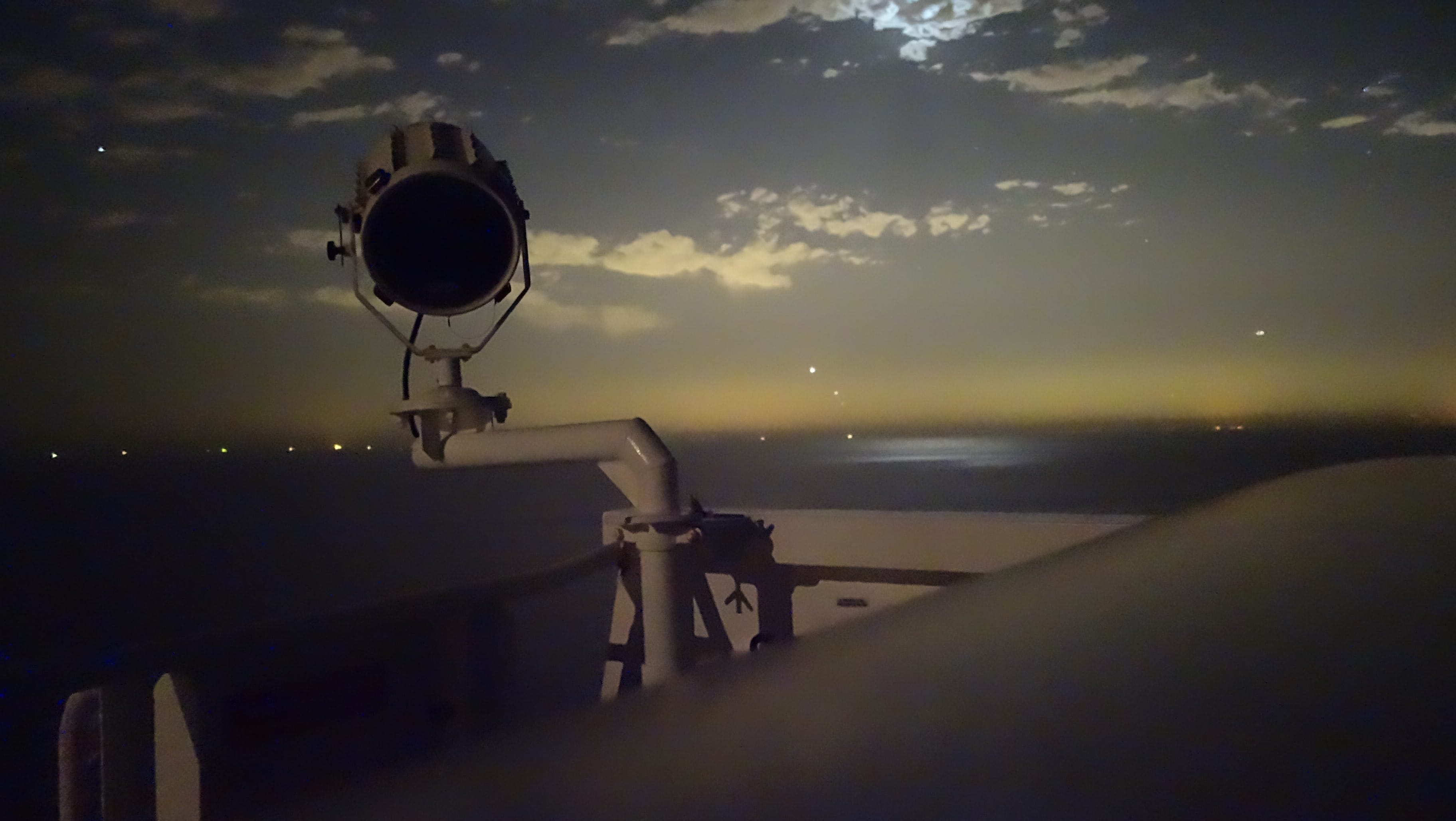Marsaxlokk-Jabal Ali: Surmises
How will I ever be able to return to life, “circumspect life” in Melville’s words, after that, the “delirious throb” of this research adventure?
In his gorgeous opening to Moby Dick, Melville writes, “whenever it is a damp, drizzly November in my soul; […] then, I account it high time to get to sea as soon as I can.” Will I go from the balmy blue skies of the Arabian Sea –and this glorious caesura in ordinary life– to a soul enshrouded in November?
No ethnographic experience of mine has been as pleasurable as this one, perhaps because so much of what I was doing was not necessarily about the lives of the seafarers as it was about the life of the ship as it passed through Arab seas. I didn’t feel like I was a spy in someone else’s house; didn’t feel that I had to pry to pry loose what I needed to learn. And the experience was more about the passages, the feel of the political geography of the Arabian Peninsula (and Suez) from the shipboard, and the experience of the ports and of the security seas. What stories I have told here about and by the seafarers have been shorn of what could get their tellers in trouble. And I have left the other two passengers almost entirely out of the story, although they were fabulously interesting ethnographic subjects.
What was extraordinary was the gradual slowing down of my life and the adjustment of my rhythms to the rhythm of the ship, and developing a routine that included hours and hours either in the wheelroom or walking around the circumference of the ship under a canopy of containers on the walkway around the upper deck. Alongside these more sociable activities, I took a couple of hours everyday to read in the sunshine, alone, and my morning coffee was also unsociable (after a few awkward breakfasts in the officers’ mess where I really didn’t feel like talking just yet). At night, when I finally came to bed, I would listen to music and write both the posts and in my private diary.
I listened to huge amounts of music. When reading, when writing, and sometimes when walking on the upper deck. It became clear after a bit that certain kinds of music lent itself much more amenably to this experience. I have named the posts after music that also acts as a mnemonic of the mood of that day. I was already obsessed with the Brooklyn band The National which my friend Jason had suggested to me. The obsession has only intensified. Something about the mood and cadence of the music was perfect for thinking about the things the sea and the ship and the seafarers suggested.
Of my readings, Allan Sekula (whose whatever PDF I could find I carry on my laptop) was undoubtedly the most astonishing, affecting, thought-changing. I found myself arguing with him, and more than a little in love with him. Reading Marx’s Capital Vol II was a bit boring (yes, I know, SACRILEGE!) for reasons I will post a bit later. It was rather wonderful reading Braudel while steaming along the southern part of the Mediterranean, and humbling even when one would vehemently disagree with one thing or another in what he argued.

And Moby Dick. Reading the novel again at a leisurely pace and taking note of the gorgeousness of the language was one pleasure. But then, to have his passage through the Indian Ocean coincide with our passage through the Arabian Sea was such an extraordinary flash of serendipity. I was ever so grateful to Melville, because he seemed to sometimes agree with me and sometimes with Sekula in the round-and-round arguments I kept having with the latter, and this three-way conversation was perhaps the most wondrous intellectual memory of the trip.
What else? Quick things I shall mention and move on. I never felt seasick, but then the seas through which we travelled were extraordinarily calm. Even on the windiest days (where the wind was blowing sometimes at over 40 knots and the northward current in the Red Sea was strong), the ship did not list, although it heaved a bit and you could find the movement in your body as you slept and you could find yourself swaying as you walked. But on those very windy days when I could feel the heaving of the ship under me, I did not feel dizzy or sick.
The ship had all bourgeois amenities, including (I discovered 2 miserable days into travel) ground coffee beans and occasional wine at dinner. I and the other passengers ate at our own table in the officers’ mess. The cadets ate at their own. The officers ate at the captain’s table. The Filipino and Indian crew had their own mess (likely with far more delicious though less fancy food than ours). I talk about the hierarchies in one of the posts. The food was better than I imagined (especially when heaped over with sambal oelek and salt), but it was mostly of the meat and two-veg variety (and loads of pasta or potatoes). I never got to try the crew’s food, because although I was invited to their party one night and had friendly on-first-name-basis relations with a couple, I could not well invite myself to their meals.
I regret that I could not speak with the crew more, although my upper deck walks afforded brief conversations (and ended up becoming the reason for taking those walks). And I wish I could have understood the conversations in the officers’ mess (which were entirely in Serbo-Croat) because I am sure they were telling political jokes. I did become very friendly with a couple of the younger officers (one of whom in particular I adore for his openness, warm and easy conversation, and patience with my endless questions in the wheelroom) and a couple of the cadets who were wonderful and explained all sorts of things to me. They expounded on everything from the differences between Serbo-croat and Montenegrin pronunciation to how the shifts and weekends and work worked aboard the ship, to the machinery of our speed at sea and the engine, maritime measures and cultures, and arcana of reading radar, AIS, and various other technical information. They talked at length about their experiences of various ports on their routes, and compared their work on different routes and for different shipping companies if they had had this experience. They spoke about the processes of certification and the politics or heartbreaks or economic decisions or maritime memories that had driven them to the sea. The Europeans also spoke about the Balkan Wars of the early 1990s.
One thing that is clear to me after this trip is how much geopolitics –understood as malign US power- still looms large in the thinking and lives of at least this sample of the world’s people, even if in our North Atlantic corner we think the hegemony (or decline) of the US and the age of global capital has put all that to rest.
Every day from later today or tomorrow (depending on how well I have managed to clear off my email-box), I shall post one day’s worth of posts from the beginning. I will add as many images and URLs as I can before I publish the posts, but these will be also be added on gradually, especially as I remember or track down the articles that had inspired elements in them.


